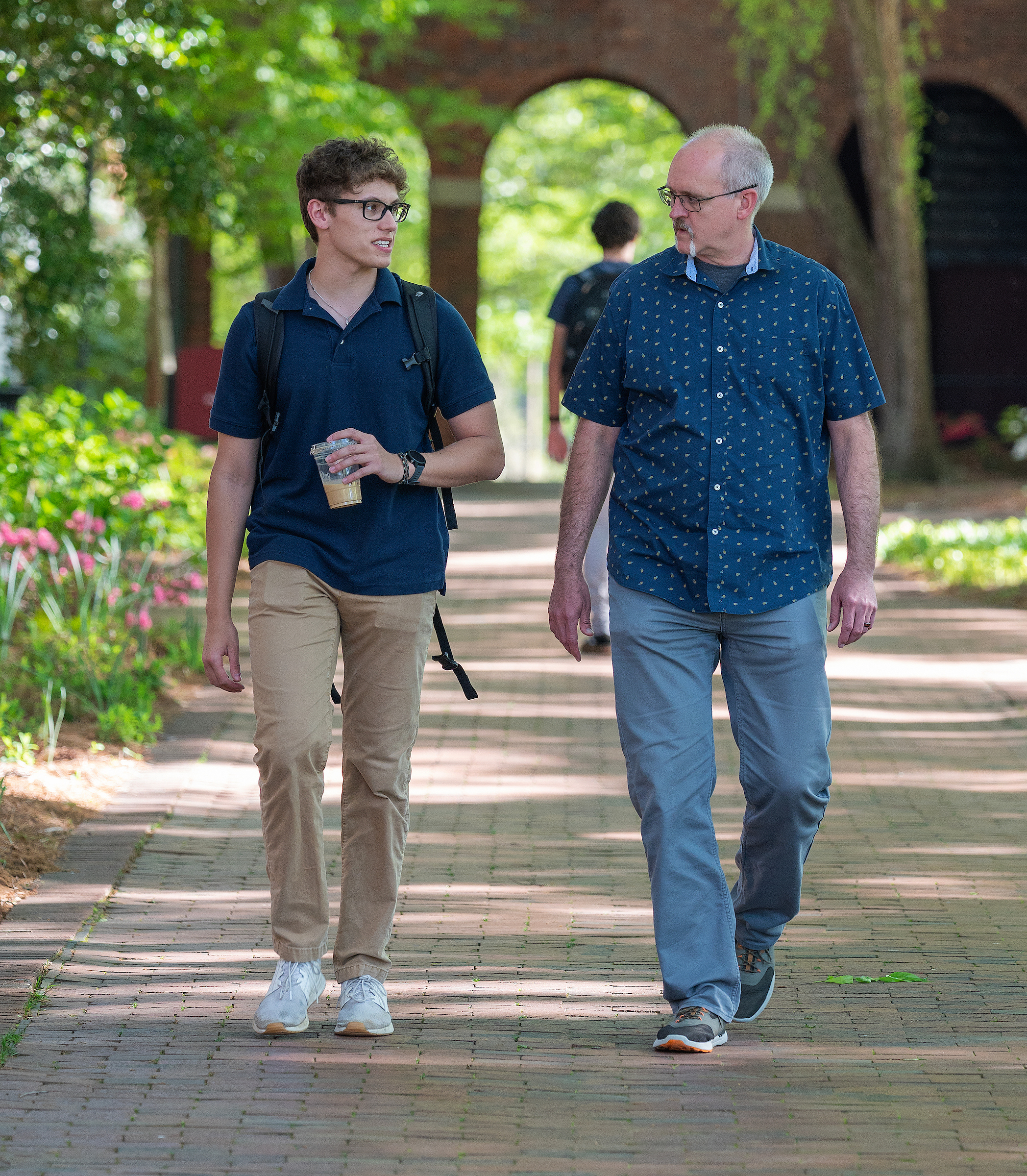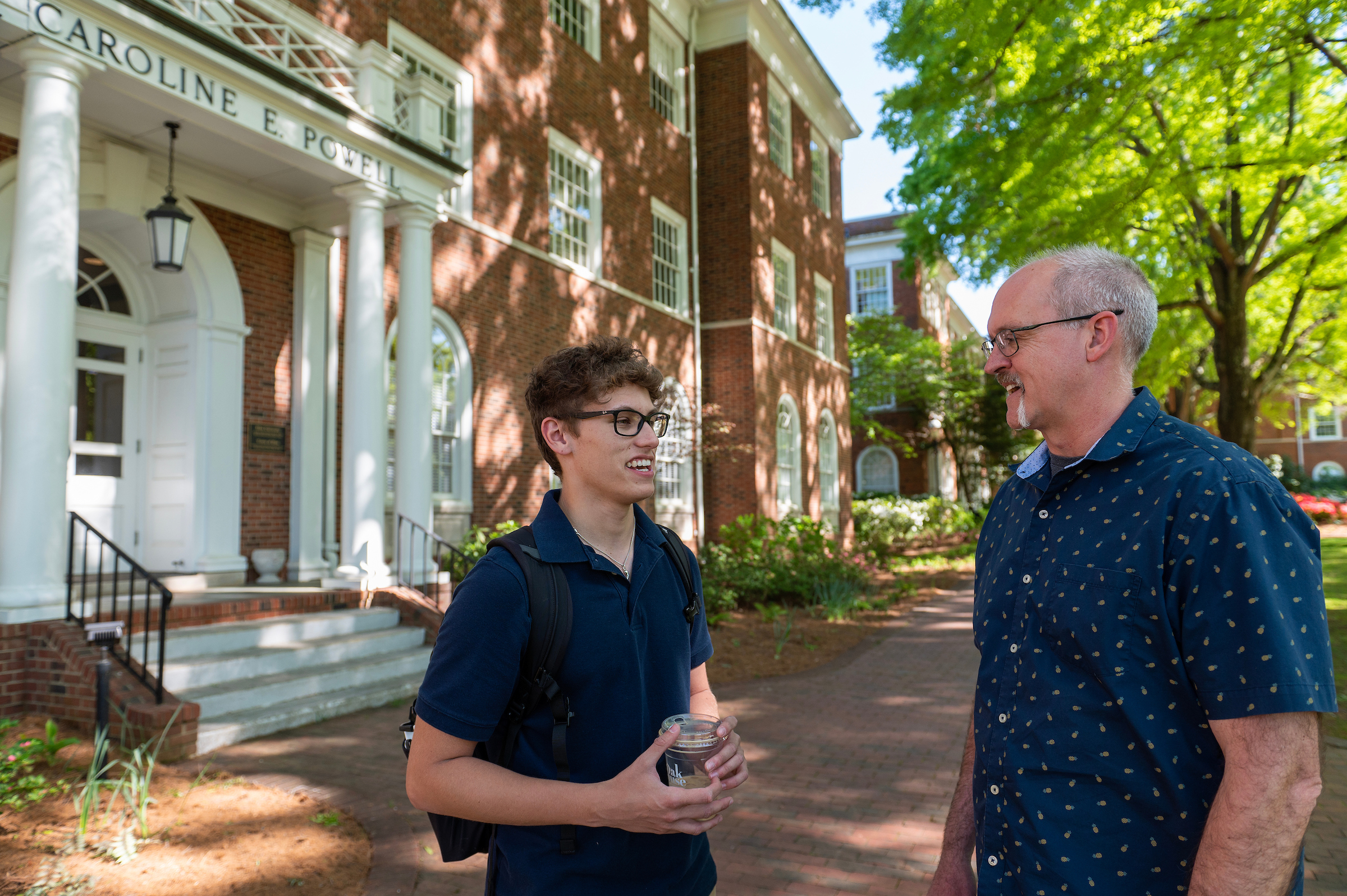Urquhart's research examines mobile phones' effect on procrastination and mental health as well as the best ways to minimize distractions and determine the relationship between mobile phone usage and academic performance and self-efficacy.
There a growing body of evidence that the smartphones and connected devices that people are increasingly relying upon can be a hindrance as much as a help, particularly when it comes to young people.
A 2016 study by the EAB, formerly the Educational Advisory Board, discovered that 97% of college students are distracted by smartphones while in class. Tallo Data found that 82% of Gen-Zers saw social media as a distraction while doing schoolwork. That same survey also reported 75% of female respondents and 56% of males compared themselves to their peers because of social media and, in some cases, felt inadequate.
These taxing distractions and internal battles do little, if anything, to mitigate the already stressful and hectic nature of college. Aware of these detrimental effects on his friends and himself, Chad Urquhart ’23 aimed his Lumen Prize research on exploring how to minimize distractions and improve the mental health of college students.
“I don’t use social media, so I’m on my phone a lot less than the normal college student, but I’ve noticed when I did have social media in high school that I’ve just been better mentally now in dealing with life stressors,” Urquhart said. “With most of my friends, I’ve seen how much they use their phones while they work. And with my twin sister, I saw the amount of time she went on her phone and not doing work until the last minute. I realized that this is a good research idea, and went with it.”
Urquhart’s research, “Tick Tock — No Time for TikTok: An Examination of Procrastination and Mental Health in Undergraduate Students,” is composed of two separate studies. The first is a correlational study that examines the effect of mobile phones on procrastination and mental health. The second is an interventional study that tests ways to minimize distractions and determine the relationship between mobile phone usage, academic performance and self-efficacy.
The Lumen Prize is Elon’s most prestigious award for undergraduate research and awards scholars a $20,000 scholarship to support a chosen research project and allows the scholar to work closely with a faculty mentor on that project for two years. Each year, 15 rising juniors are named Lumen Scholars and conduct research that often produces conference presentations and publications.

Urquhart’s project has spanned his work in various disciplines, each stemming from his unique time at Elon. Urquhart came to Elon as a biology major, switched to exercise science and is now a biochemistry major. Through it all, Urquhart has worked with Professor of Exercise Science Eric Hall, now his mentor for the Lumen Prize and the director of undergraduate research at Elon. They first met during an Exercise Science Society social event during Urquhart’s first year at Elon.
“The idea behind these studies is looking to help students be successful,” Hall said. “I think that ties into Chad’s future goal of being a physician.”
The first iteration of Urquhart’s project was designed to be an analysis of the positive effects of physical fitness on mental health. He surveyed nearly 150 Elon students and collected data on different aspects of mental health, academic confidence, GPA, social media use and procrastination, which evolved into the main focal point of his research.
Urquhart said the most surprising finding in his research was that the amount of screen time for students wasn’t as high as he initially hypothesized. He expects that may have something to do with the fact the majority of students surveyed were from STEM disciplines, and that students in other areas may have different results due to the nature of their studies.
The second element of the research focuses on how students can minimize distractions. Urquhart had students use a lock box while studying to see if that would curb some of the distractions caused by smartphones. Urquhart acknowledges that one issue with this particular method is that it doesn’t account for other technological distractions such as laptops or tablets.
Another method of working against distraction is the Pomodoro technique, which is a time management method consisting of 25-minute stretches of work broken up by five-minute breaks.
A quantitative and qualitative survey was given at the end of the intervention to analyze which intervention was preferred and if there were any complications. Most participants indicated a positive feeling towards the phone locking intervention and the Pomodoro Technique with decreased procrastinatory behaviors.
While some individuals displayed a preference for the lockbox method over the Pomodoro technique because of the constant breaks in work, there were also complications in accessing one’s mobile device for two-step verification logins for university sites or carrying around the lockbox. Future research would consist of examining the effect of tablet use within the classroom and academic self-efficacy through a two-part intervention of tablet and paper usage, Urquhart said.
Hall has noticed that Urquhart’s ability to take feedback and his confidence in the research has improved significantly since beginning the research. Urquhart has noticed his own growth in this time as well, saying, “Seeing the flaws in something I’m working on and having someone critique and accepting that criticism has helped me really well,” Urquhart said.



